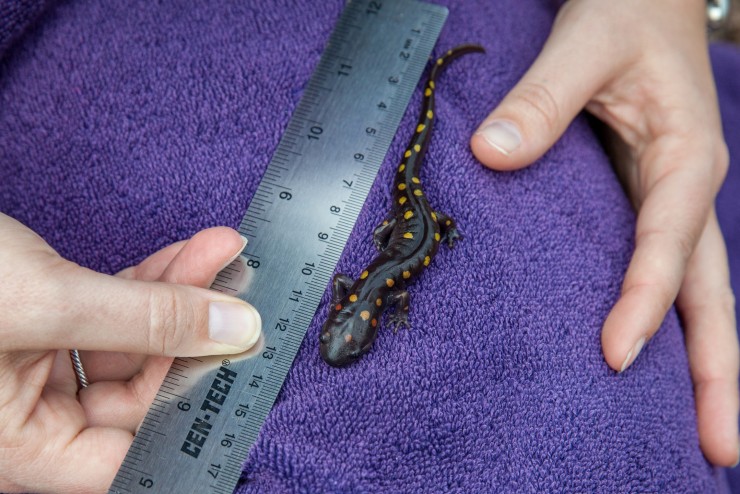
Salamanders & Climate Change
Assistant Professor of Biology Kristen Cecala and her students are answering questions about how animal species might respond to climate change, one salamander at a time.
At Sewanee, you’ll find 13,000 acres of opportunity at your fingertips. You will have opportunities to observe, grow, preserve, measure, manage, and restore the many natural resources of this living laboratory that we call the Domain. Your woodland classroom awaits.

Assistant Professor of Biology Kristen Cecala and her students are answering questions about how animal species might respond to climate change, one salamander at a time.
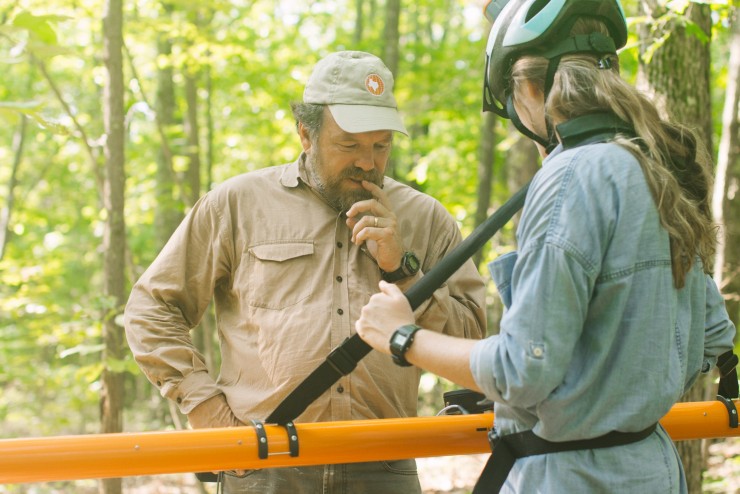
The Domain is known for expansive forests, remote caves, and sprawling bluff views. It boasts all of these things—but the Domain 3D project is interested in something that’s been, until now, inaccessible: what’s under our feet. Deep under our feet.
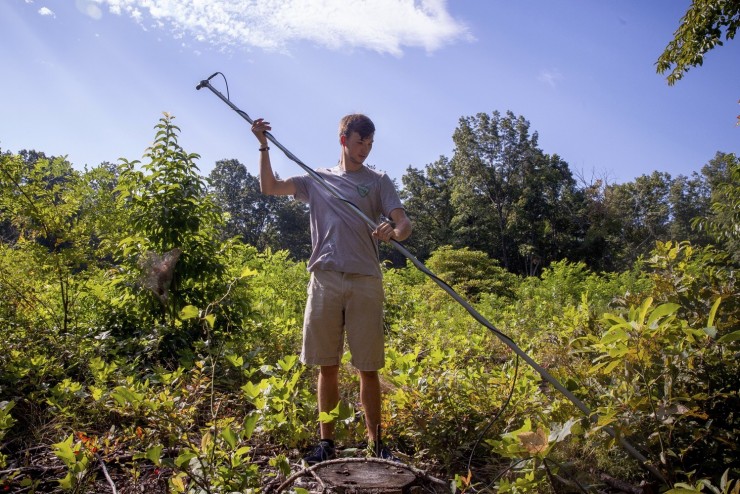
Scientists from around the Southeast descend on Sewanee to survey bat populations and get a look at the kind of ecological research being conducted on the Domain.
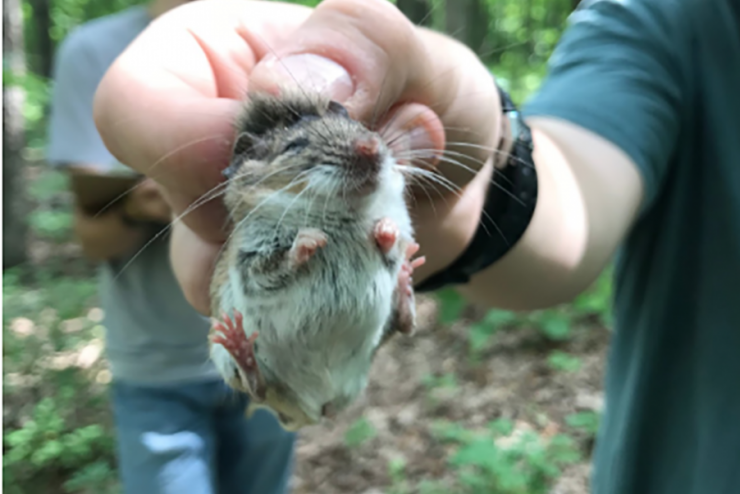
Working with faculty and OESS, students spent their summer working on field research projects trapping, measuring, and surveying the habitats of mice, bats, salamanders, and turtles.
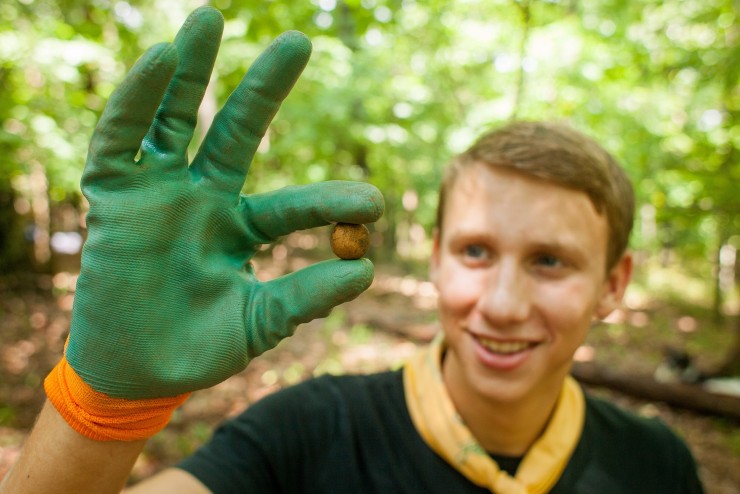
The Domain contains a highly diverse prehistoric and historic record of human land use. Field experiences include prehistoric rock shelter and historic house excavations. Past excavations have recovered evidence of plants, animal bone fragments and tools.
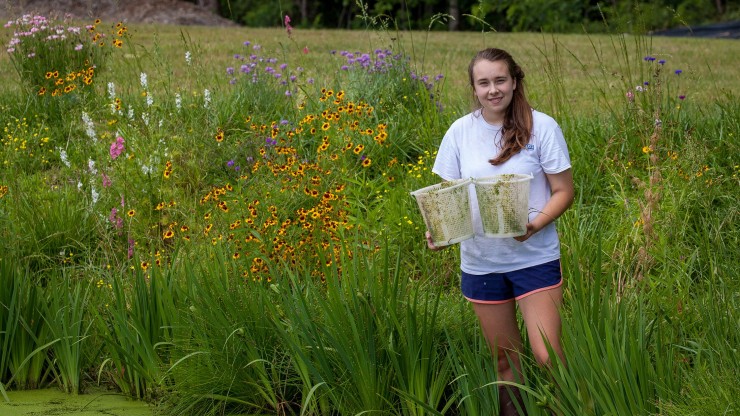
Students and professors in a variety of disciplines take advantage of Sewanee’s local ecology to engage in water and water-systems research that is as deep as it is wide.
“The important thing to remember is that we are at the top of the watershed,” says Ken Smith, assistant dean of environmental programs. “That means our drinking water is about as clean as you can get, and also that we can measure what we do to that water at the municipal scale and get insights that researchers in other areas cannot. What happens here matters here, but it also matters elsewhere. We are starting to understand that better every day.”
Several years ago, Smith, along with colleagues Karen Kuers and Martin Knoll, put together a watershed science certificate, which now also involves Assistant Professor Keri Watson, and Biehl Professor in Biology Deborah McGrath. Along with Amy Turner, director of the Office of Environmental Stewardship and Sustainability, Rob Bachman in chemistry, and several colleagues in biology, Sewanee professors and their students are exploiting the local ecology to produce an ever more robust understanding of the fate of water.
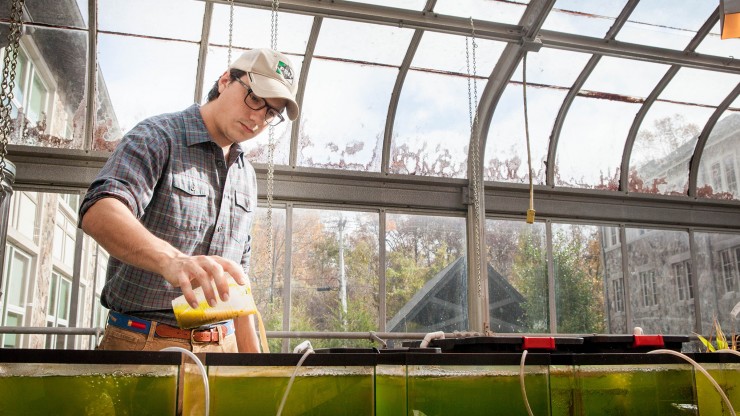
The University Farm explores an experimental aquaponics system to grow vegetables and save water on and beyond the Domain.
In the fall of 2016, Sewanee found itself in the clutches of one of the worst droughts the region had ever seen. Classified by the U.S. Drought Monitor as severe, the drought meant that soils at the University Farm suffered for lack of rain. “I was running my irrigation water all the time, just trying to keep plants that are in the field alive,” says University Farm Manager Carolyn Hoagland.
Fortunately, there was already a solution in the works. Hoagland had experimented with aquaponics for environmental sustainability at the farm before the drought arrived. And now, a little more than a year after the drought, the system has been refined in ways that could extend its use well beyond the Domain. The project, already involving Sewanee students and faculty members, stands to expand to surrounding counties, particularly to farmers looking for a greener alternative to traditional farming.
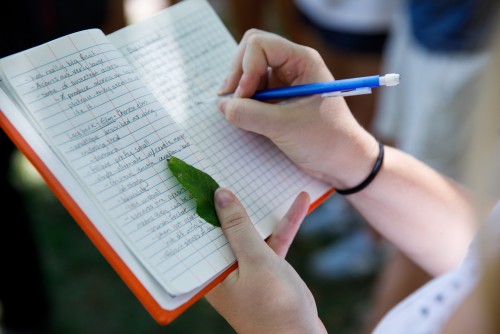
Sewanee's Integrated Program in the Environment is one of the premier collections of environmental offerings in the country. A working farm, a 13,000-acre forest, and well-funded internships offer opportunities to apply your classroom learning. An expansive curriculum—including natural and social sciences as well as the humanities and fine arts—offers students multiple pathways for gaining an understanding of the ecological complexity and wonder of the earth we inhabit.
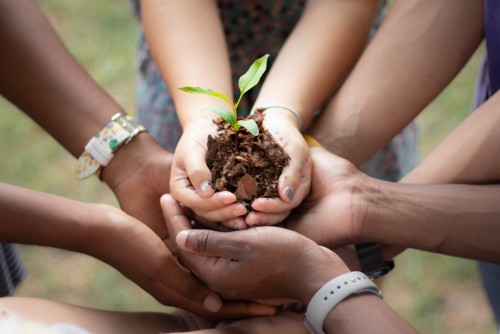
The Office of Environmental Stewardship and Sustainability offers students myriad opportunities to engage with the outdoors. Whether your passions are natural resources management, food production, animal care, field research, or sustainability, there's a place for you to get your hands dirty on the Domain!
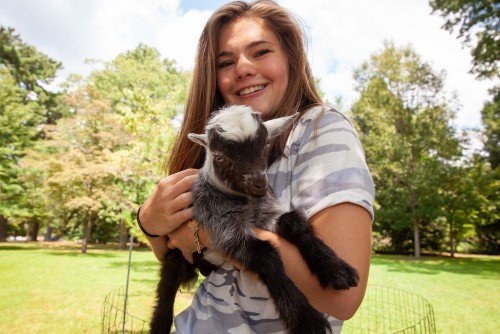
The University Farm offers students a transformative experience through the immersive and intimate practice of restorative agriculture. At the farm you'll find many opportunities to enhance your education and connect with the history of agriculture. And if you’re lucky, there will be some baby goats around during finals.